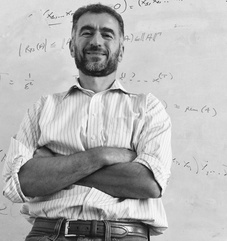- When: Friday, November 19, 2021 from 01:00 PM to 02:00 PM
- Speakers: Rosario Gennaro, Professor The City College of New York
- Location: Research Hall 163
- Directions: Following University guidelines, if you are attending the on-campus Distinguished Lecture Series talk, you need to RSVP through the below link: https://docs.google.com/forms/d/e/1FAIpQLSc8hLGh9z--8_CO0VsVPWtMTdmOKLRu472BmEugJ05k2OPJmg/viewform?usp=sf_link Participants must complete Mason COVID Health✓™ and receive a “green light” status on the day of the event. Masks are also required for attendance
- Export to iCal

ABSTRACT
Cryptographic proofs are defined as (possibly interactive) protocols where a Prover convinces a Verifier of the truth of a certain computational statement. The proof has a soundness property which guarantees that no Prover can convince the Verifier of a false statement with sufficiently high probability (at least not in a computationally feasible way -- in which case proofs are more precisely called "arguments"). A different approach is to consider a model where "cheating" might actually be possible, but the Prover would have no motivation to do so. In other words while cryptographic protocols prevent any (efficient) adversary from cheating, one can consider protocols that work against *rational* adversaries whose motivation is to maximize a well defined utility function. In this talk I will survey some of the main results and approaches in the area of Rational Proofs, including a fascinating connection to Fine-Grained Cryptography (defined as Cryptography which is secure against adversaries that run in a fixed polynomial time, as opposed to any poly-time adversary) and discuss the main open problems.
BIO
Rosario Gennaro is a Research Scientist at Protocol Labs, while on leave from The City College of New York.
He received his Ph.D. from the Massachusetts Institute of Technology in 1996, and was a researcher at the IBM T.J.Watson Research Center before joining City College in the Summer of 2012. His research focuses on cryptography and network security and more in general on theoretical computer science. His most recent works addresses the security of blockchain protocols, the issues of privacy and anonymity in electronic communication, and proactive security to minimize the effects of system break-ins.
Posted 4 years, 3 months ago
